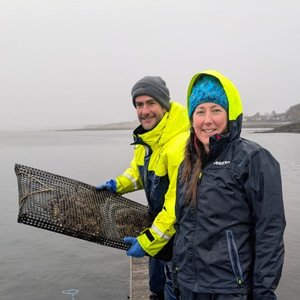Abstract
Tor tambroides and T. douronensis, locally referred to as semah and empurau respectively, are high valued mahseer species indigenous to Sarawak, East Malaysia, with an aquaculture potential and conservational value. These two indigenous species live in headwaters of most major river systems of this state. They can also be found in Peninsular Malaysia and are distributed throughout south-east Asia, from Indonesia to southern China (Kottelat et al. 1993, Roberts 1999, Zhou and Cui 1996).
Semah is the state fish of Sarawak. Both species currently fetch a very high market price are have high cultural value. Juveniles of these two species are also increasingly sought after by the aquarium industry (Ng 2004).
This ENACA guide explores the artificial propagation of semah (Tor douronensis) and empurau (Tor tambroides), two species of high commercial and conservation value in Sarawak, Malaysia.
Keywords
Tor tambroides, T. douronensis, semah, empurau, Sarawak, aqaurium
Table of contents
Acknowledgements
List of tables
List of figures
1 Introduction
2 Semah and empurau
2.1 Nomenclature and taxonomy
2.2 Distribution
3 Guidelines for broodstock management
3.1 Procurement of new broodstock
3.1.1 Number of broodstock
3.1.2 Capture
3.1.3 Quarantine
3.1.4 Microchipping
3.2 Maintenance
3.2.1 Pond and tanks maintenance/ management
3.2.2 Sedation and anaesthesia
3.2.3 Water quality.
3.2.4 Nutritional requirement and feeding
3.2.5 Biosecurity
3.2.6 Health management
3.2.7 Data management
3.3 Artificial propagation
3.3.1 Spawning in captivity
3.3.2 Hormone induced spawning
3.3.3 Stripping and fertilisation
3.3.4 Egg incubation
3.4 Larviculture
3.5 Fry rearing (nursery phase)
3.5.1 Tank culture
3.5.2 Pond culture
3.6 Grow-out
3.6.1 Pond culture
Author(s)
Project team: Dr. Sih Yang Sim, Dr. Thuy Nguyen, Dr. Brett Ingram, Prof. Sena De Silva (NACA), Mr. Geoff Gooley (PIRVic), Mr. David Tinggi (IFRPC), Dr. Stephen Sungan
Publication
ENACA, November 2007
Link
Download from ENACA (PDF)







